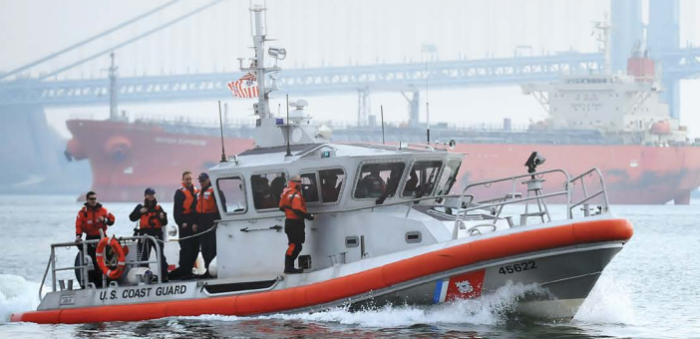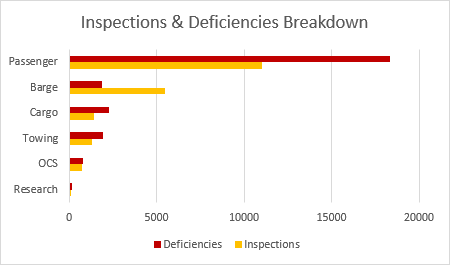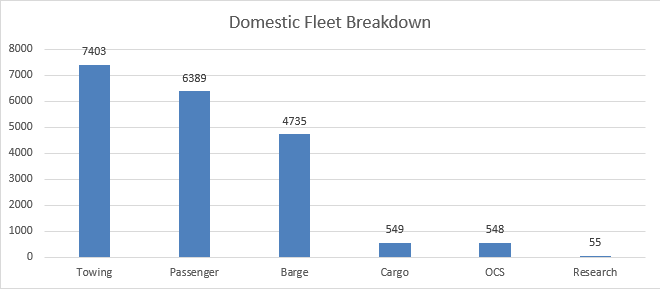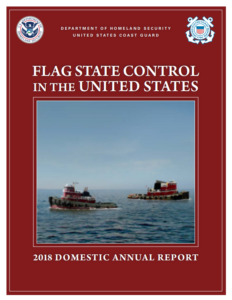In April 2018, the Department of Homeland Security of USCG released its annual report concerning the PSC performance of U.S. flagged vessels. The report includes deficiency and detention rates for each type of inspected vessel, as well as performance metrics for Recognized Organizations that perform work on the Coast Guard’s behalf. For the first time, the report cites information reflecting the entire U.S. Flag fleet, including barges, cargo vessels, passenger vessels, vessels operating on the Outer Continental Shelf, research and school ships, fishing vessels, and the newest members of the inspected fleet, towing vessels.
With the addition of towing vessels, which started getting inspected under 46 CFR Subchapter M in July of 2018, the size of the U.S. inspected fleet grew by approximately 6,500 vessels to a total fleet size of nearly 20,000 vessels, an increase of 50%.
Key findings for US flagged vessels
In 2018:
- 20,048 inspections carried out by USCG personnel to vessels conducting domestic voyages;
- 25,324 deficiencies were reported;
- The main types of vessels inspected were: Barges; Cargo; Passenger; Outer Continental Shelf (OCS); Research and; Towing.
The analysis revealed that the top 5 detainable deficiency areas are:
- Fire Safety;
- Structural Conditions;
- Propulsion and Auxiliary Machinery;
- Certificates and Documentation;
- Firefighting Equipment.
As for reported incidents, USCG acknowledged 1, 946 marine casualties as per below:
The top 3 Marine Casualties per type are the following:
Passenger
Passenger sector is the most extended with respect to number of vessels inspected (11,018 passenger vessels) which is approx. the 50% of overall inspections, showing that passenger vessels are a key focus area for USCG Officers. However the detention rate of the sector is 0.15% which is below overall average, which demonstrates that the passenger vessels for domestic navigation comply effectively with high standards in US waters.
Towing
Towing sector has a significant higher detention rate and casualty share since almost half of the casualties that were reported during 2018 in domestic navigation involved towing vessels. Additionally, the detention rate for towing vessels is more than 4 times the overall average.
Cargo
Cargo vessels, along with the barge sector, form the domestic product carriage sector. In 2018, cargo vessels showed a high detention rate more than the average and were involved in the 11.36% of marine casualties of domestic navigation. The most common deficiency areas for cargo vessels are: Vessel’s maintenance, Occupational safety, electrical power (generators and emergency generators), launching appliances, ventilation systems etc.
Barges
Barges are also used for cargo transfer in US domestic waters. Their share in casualties (12.44%) has an immediate relationship with towing sector because most of the barges need to be supported by towing vessels. The detention rate that this sector shows is below average and supportively the deficiencies per inspection is close to 0. This may be attributed to the fact that barges have only structure issues as they are supported by other types of vessels in order to operate.
[smlsubform prepend=”GET THE SAFETY4SEA IN YOUR INBOX!” showname=false emailtxt=”” emailholder=”Enter your email address” showsubmit=true submittxt=”Submit” jsthanks=false thankyou=”Thank you for subscribing to our mailing list”]
The last two sectors including Outer Continental Shelf (OCS) and research vessels, involve a small number of ships with specific duties; thus their PSC performance is usually satisfactory since they have a little share in marine casualties (below 2% for both sectors) and small detention rate (OCS 0.14%, Research 0%).
Fleet details
In 2018, the U.S. Flag fleet contained 19,679 vessels subject to inspection. The fleet breakdown per type is as below figures:
Concluding, the analysis reveal that USCG’s domestic involved personnel and resources had a satisfactory PSC performance within last year, based on inland rules and legislation, international conventions and high quality standards.
Explore more by reading the 2018 USCG Domestic Annual Report herebelow






































































